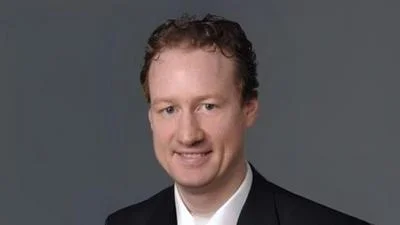Illinois Governor's Office issued the following announcement on July 31.
Governor JB Pritzker and Lt. Governor Juliana Stratton today announced the 21st Century Illinois Transformation Model, a new plan that will transform the state's juvenile justice system over the next four years. The Model focuses on reducing the harm of incarceration by transitioning youth to small, regional residential centers, investing significantly in community wraparound support and intervention services for justice involved youth, and increasing financial support for victim services in communities that are disproportionately impacted by violence. More information about the plan is available online here.
The Illinois Department of Juvenile Justice (DJJ), in partnership with the Justice, Equity, and Opportunity Initiative (JEO), utilized decades of evidence from across the country, and within its own system, to create the plan with the goal of achieving meaningful transformation, better youth outcomes, and increased community safety.
"An essential tenet of good governance is recognizing the need to change the laws that have failed the people they serve - some by design. It means doing everything in our power to reverse the tide," said Governor JB Pritzker. "It's in that spirit that over the next four years, my administration is transforming our juvenile justice system from one that disproportionately harms Black youth, families and communities to a nation-leading, restorative and therapeutic model that supports all Illinois youth, families and communities more equitably. We've developed this model based on decades of research - and I'm particularly proud that here in Illinois, we will be working directly with youth and families who have been impacted by the system as it has existed for years."
Larger DJJ facilities will be repurposed for use by the Illinois Department of Corrections (DOC) to provide additional space and prevent overcrowding in their facilities. Current DJJ staff will continue to work in the department or in similar roles at the DOC.
"We have a timely opportunity to do right by the kids, families, and communities of Illinois. As a Justice, Equity, and Opportunity initiative, this plan will eliminate harmful policies and practices of the past, improve the conditions of Illinois juvenile facilities, increase prevention programming, and bring actual justice and restoration to some of the most vulnerable youth in our state," said Lieutenant Governor Juliana Stratton. "This plan will not only advance reforms at IDJJ, but it will also allow the Department of Corrections to expand their programming and reduce overcrowding within their facilities."
"This new facility will allow DJJ to become more intentional in engaging families and transitioning youth from facilities back into central Illinois communities, and will also allow younger or more vulnerable youth to be placed closer to their families. In addition, DJJ will be able to design the new facility to be as safe, therapeutic and healthy as possible for youth and staff.," said Heidi Mueller, Director of the Illinois Department of Juvenile Justice. "The new, small, central Illinois residential center, will allow DJJ to maintain smaller populations in each existing facility to protect public health, as well as allowing each facility team to focus on developing specialized skill-building and treatment, and more effectively coordinating the transition for youth back into their communities."
Phase I of the Model marks the beginning of increased community investment in wraparound support, intervention services, and reentry programs for justice involved youth. Additional investments are planned for victim services in communities that are disproportionately impacted by violence and disinvestment.
New Life Centers and their Urban Life Skills program, Youth Advocate Programs Inc. (YAP), Youth Build, and Youth Outreach Services (YOS) are key community partners helping DJJ bridge the gap between the Illinois Youth Centers and the youth's communities of origin.
"In Chicago, we've worked closely with IDJJ to build safer communities and improve youth outcomes through gang mediation, mentoring, job readiness, family support, restorative justice, and more," said Matt DeMateo, Executive Director of New Life Centers. "Empowering youth with the tools to succeed creates a safer and brighter future for young people."
Phase II & III, slated to begin next year, will continue the regional reinvestments and start the process of transferring DJJ's larger facilities to the Illinois Department of Corrections.
"Creating a juvenile justice system that provides youth, and their families, with the care and support they need to succeed in life is critical piece of transforming communities that have suffered from disinvestment," said Illinois State Senator Heather Steans. "The new 21st Century Illinois Transformation Model the Illinois Department of Juvenile Justice announced today will better serve Illinois youths and set them on a path to a fulfilling future."
"As the Illinois Department of Juvenile Justice continues to implement best-practice programs for our youth, its new innovative residential model stands a testament to the agency's commitment to provide a rehabilitative approach for not only youth, but also for families and communities," said Illinois State Representative Justin Slaughter.
To learn more about the Department of Juvenile Justice, please visit https://www2.illinois.gov/idjj/Pages/default.aspx.
Original source can be found here.




 Alerts Sign-up
Alerts Sign-up